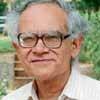With the passing away of Kusum Jain recently, Delhi has lost a fighter for children. She chose her own fight path and stayed true to its direction. Troubled by the many injustices that school children suffer in our system, she founded an organisation called the Parents Forum for Meaningful Education (PFME). In the initial years, she assumed that the forum’s voice would reach the power structures that shape children’s fate during their school years. She soon realised that pleas for reform in the architecture of power need power to translate ideas into reality. What power could Kusum Jain wield?
To seek justice for school children, she approached the courts. Her fight was never easy. In case after case, it was clear that layers of fear and secrecy prevented any open challenge to the use of physical force for disciplining children. The first layer is the child’s fear, the second is that of the parents. What happened in the classroom or the principal’s office is something no child wants to reveal at home. When you are small, you are afraid that adults at home will blame you for provoking the teacher. And then, finding witnesses who will testify to acts of violence or humiliation meted out at school is difficult.
I remember Kusum asking parents to stand by their children. But even in cases where the child’s body carried the marks of physical punishment, parents were reluctant to pursue a complaint simply because they didn’t want to antagonise the school. Even more difficult were cases where the punishment consisted of humiliation leaving the child psychologically injured.
In a major case, PFME succeeded in challenging the existing rule that permitted corporal punishment. The Delhi High Court struck down the rule, opening the legal path for the implementation of the UN Convention of the Rights of the Child and the constitutional provisions that defend the child’s need for dignified treatment. Kusum was, of course, aware that legal victories have to be supplemented by reforms in teacher training and school administration.
Every news item of harassment of children troubled Kusum as a personal matter. She has died, but her angry voice will always resonate in my ears, representing the civic conscience hurt by the violent treatment of school children.
Exams constitute another domain of dark secrecy. Boards resemble Kafka’s castle. Bye-laws permit the regime of confidentiality at every step in the conduct of exams. Between the setting of question papers to the evaluation of answer sheets and the declaration of results, the examination system is steeped in a legalised culture of secrecy. Children are scared of facing the Boards, not just because teachers and parents use the fear of failure or poor marks as means to motivate hard work. The fear has deeper roots — in the feeling that if an answer sheet is unjustly marked, no one will ever see it.
Kusum Jain took on this hardened system and challenged the bye-laws that justify the lack of transparency and rectification in cases of unfair marking. In this difficult terrain too, she strode with firm resolve, spending hundreds of hours preparing grounds for legal battles against a frozen system and its defendants. Her aim was to secure the student’s right to inspect the answer sheet after evaluation. She had partial success, opening the way for a ray or two of light to shine through the dark castle.
A few years ago, she was injured when a car parked inside a court’s premises drove off without looking. Even while she was recovering, Kusum was working on plans to make her Forum reach out to a wider orbit of awareness and struggle. At times, I wondered what motivated her to stay so steadfast to a cause that most people give up after their children have finished school education.
In the annual calendar of our education system, there are two seasons when parents get worked up — at the time of admission and then, at the end of the session during the final exam. When a child has successfully negotiated the Boards, the average parent bids farewell to the dream of systemic reform. Kusum Jain lived that dream day and night, in health and sickness. Her feisty spirit and modest demeanour will remain a treasured, inspiring memory.
The writer is former director, National Council of Educational Research and Training





















 Toi Staff
Toi Staff Gideon Levy
Gideon Levy Belen Fernandez
Belen Fernandez Rami G Khouri
Rami G Khouri Mort Laitner
Mort Laitner Rachel Marsden
Rachel Marsden Donald Low
Donald Low Bradley Blankenship
Bradley Blankenship Ali Fathollah-Nejad
Ali Fathollah-Nejad Nikkei Editorial
Nikkei Editorial Abbas Juma
Abbas Juma Michael Kwet
Michael Kwet
